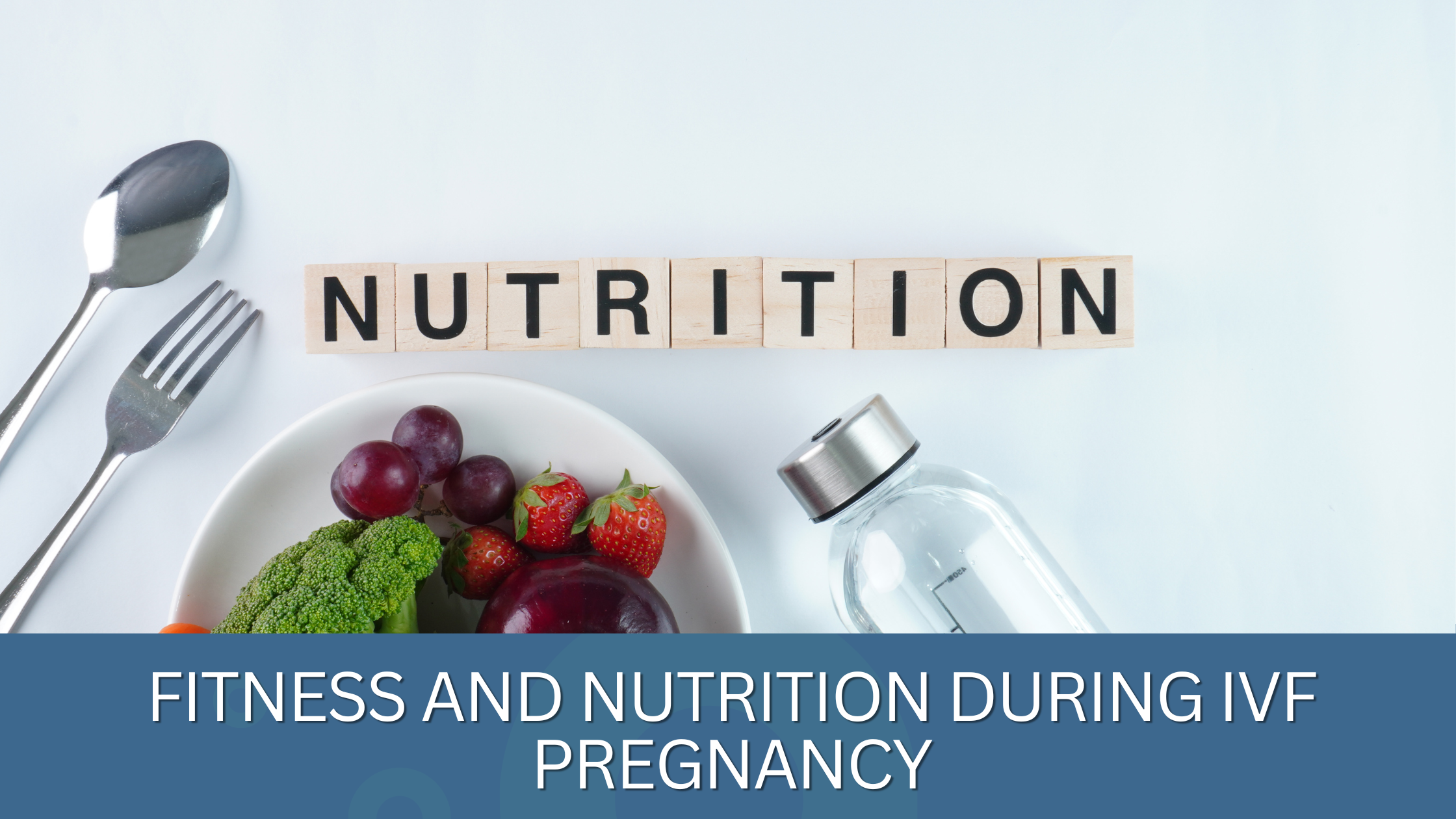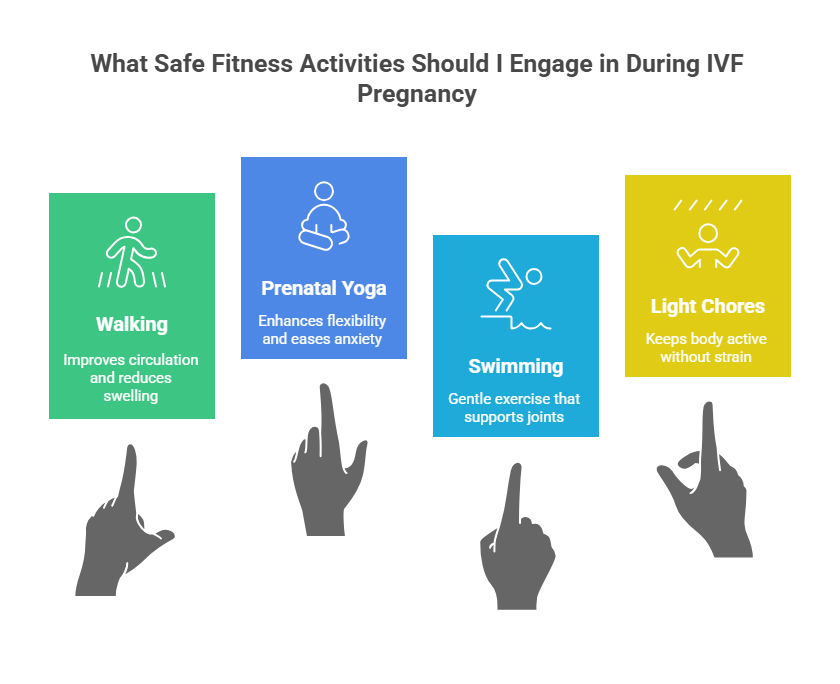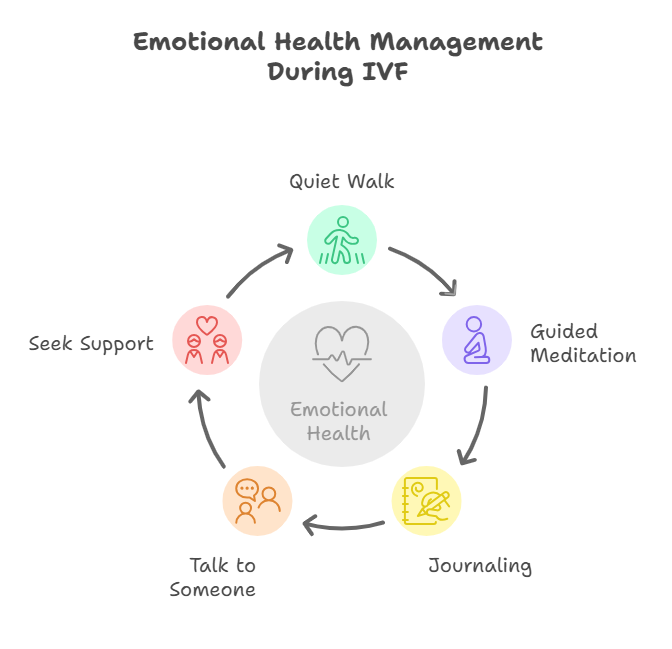
If you are going through an IVF pregnancy, you already know it’s not the same as a regular pregnancy. There is more monitoring, more medication, and often, more questions running through your mind. What should you eat? Is it safe to exercise? Should you rest more?
It’s okay to feel overwhelmed. The good news is, you don’t need a complicated plan. A few simple choices around food and movement can make a real difference in how you feel physically and emotionally during an IVF pregnancy.
Why Fitness and Nutrition Matter More in an IVF Pregnancy
In IVF, conception doesn’t happen naturally. The embryo is created outside the body and transferred into the uterus. To make that work, your body is supported with hormones to prepare the uterine lining and give the embryo the best possible chance to implant and grow.
This extra hormonal activity can make your body feel a little different from how it would in a natural pregnancy. You might feel more tired, bloated, or anxious. That’s completely normal. But it also means that staying healthy through gentle movement and balanced meals can help more than you might think.
Good nutrition and light activity support your energy levels and can help reduce the chances of complications like gestational diabetes or high blood pressure. They also keep your digestion moving, your mood stable, and your sleep a little easier.
Safe Fitness Tips During IVF Pregnancy

You don’t need to break a sweat to benefit from exercise. In fact, it’s better if you don’t. The goal during this time is to keep your body gently active without putting stress on it. According to the American College of Obstetricians and Gynecologists (ACOG), gentle physical activity like walking or prenatal yoga can improve circulation and reduce stress during pregnancy.
Here are a few movement ideas that are usually considered safe:
1. Walking at a slow or moderate pace
2. Prenatal yoga or stretching
3. Swimming or gentle water aerobics
4. Light household chores if you’re feeling up to it
These kinds of activities improve circulation, reduce swelling, and can ease anxiety. Just remember, rest is equally important. If you feel tired or your doctor recommends taking it easy, listen to your body.
Avoid things like heavy lifting, high-impact workouts, or anything that puts strain on your core. IVF pregnancies can be more sensitive, especially in the first trimester, and it’s always best to ask your doctor before trying anything new.
Nutrition Essentials for IVF Moms-to-Be
When it comes to food, your body needs fuel, not perfection. Think about eating in a way that keeps your blood sugar steady and your energy up.
Try to build meals around real, whole foods. Here’s a simple formula that works well:
1. Lean proteins like eggs, tofu, chicken, or legumes
2. Whole grains such as brown rice, oats, or quinoa
3. A mix of colorful fruits and vegetables
4. Healthy fats like nuts, seeds, olive oil, or avocado
You don’t need to eat huge portions. Small, frequent meals can be easier on your digestion, especially if you are dealing with nausea or bloating.
Also, don’t forget to drink water. IVF medications and pregnancy hormones can make you feel more thirsty than usual. Aim for at least eight glasses a day, and more if you’re spending time outdoors or feeling warm.
Supplements and IVF: What’s Safe and What’s Not
Most doctors will start you on a prenatal vitamin, but it still helps to know what nutrients are especially important right now.
1. Folic acid helps prevent birth defects and supports early brain development
2. Iron carries oxygen and helps prevent fatigue
3. Calcium and vitamin D support bone health for you and your baby
4. Omega-3s are great for your baby’s brain and eye development
Try not to add supplements on your own. High doses of certain vitamins, especially fat-soluble ones like A, D, E, and K, can be harmful in large amounts. Always ask your doctor before starting anything new.
And while herbal teas or “fertility boosters” might sound tempting, they can interact with medications or affect your hormone levels. It’s best to avoid them unless your fertility specialist gives you the go-ahead.
Managing Emotional Health Through Lifestyle

IVF is not just physically demanding. It’s emotionally intense, too. Taking care of your emotional health is just as important as taking your vitamins. Here are a few things that can help you feel more grounded.
1. Go for a quiet walk and leave your phone behind for a bit
2. Try a short guided meditation before bed
3. Keep a journal to release your thoughts and track how you’re feeling
4. Talk to a friend or partner about what you are going through
5. Consider joining a support group or speaking to a counselor who understands IVF
Feeling anxious or emotional does not mean you are not strong. It means you are human. And giving yourself space to process those feelings is one of the kindest things you can do for yourself.
Every IVF pregnancy is different, and every journey is personal. Whether you are still waiting for your first scan or already counting down to the second trimester, know that you are not alone.
Have questions about your IVF pregnancy and what comes next?
Reach out to London IVF Centre and take the next step with confidence and care.



